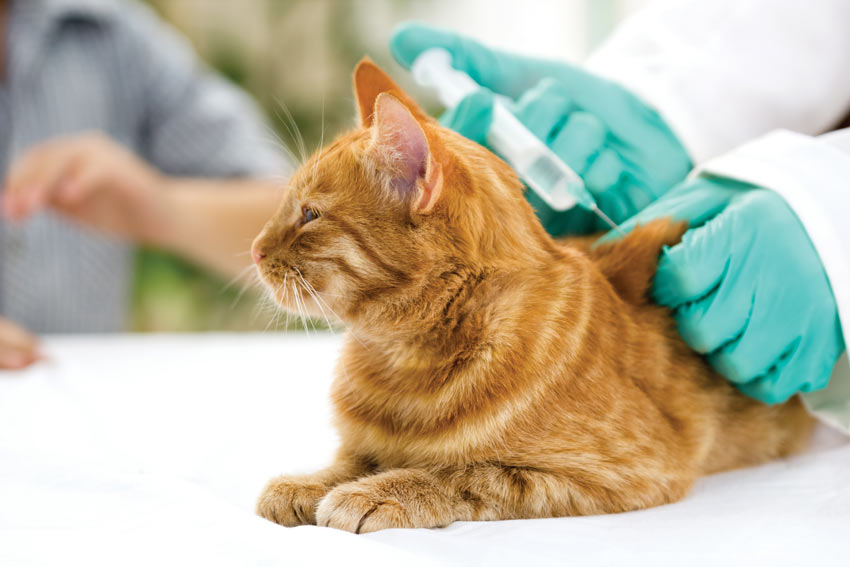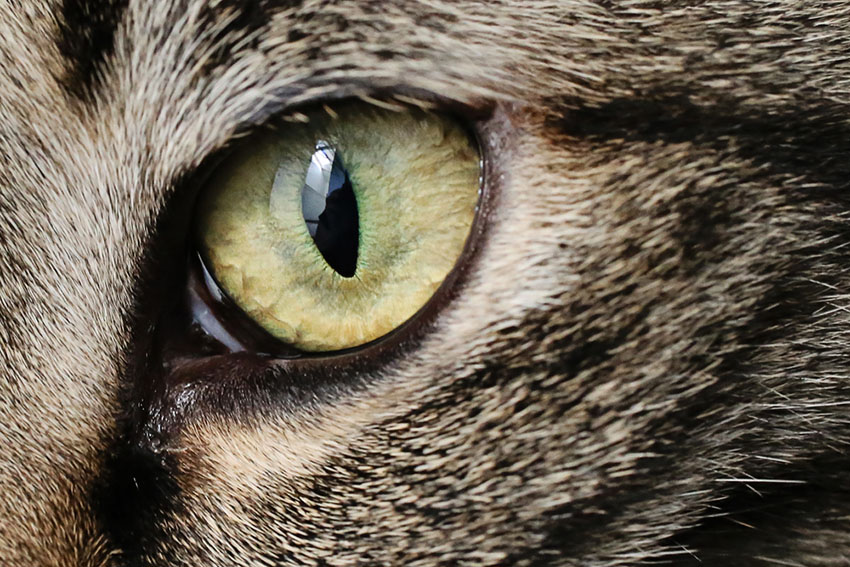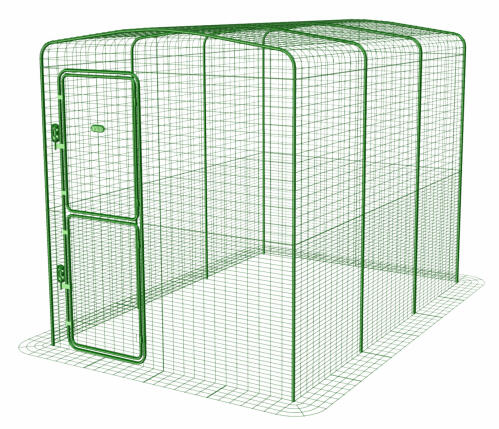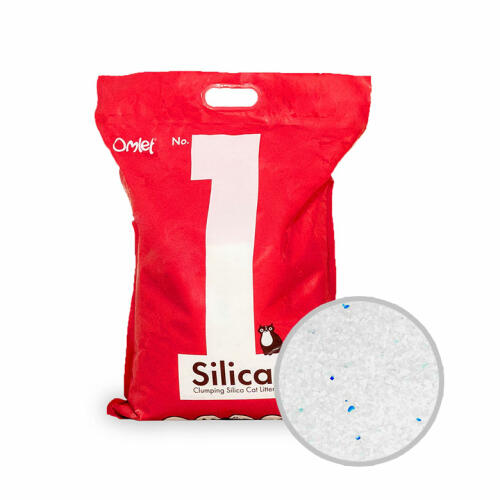Just like us, cats get diseases that can be prevented by vaccinations. Many of us see our cats as an important part of the family, and like our human family we want to protect them from anything the world throws at them.
Cat vaccinations are relatively inexpensive and are certainly a lot cheaper than the treatment required should your cat get one of the diseases.

A ginger tabby cat having a vaccination
What Vaccinations Does My Cat Need?
Your vet will advise you on the full set of necessary vaccinations, and will provide you with a log book to record your pet’s medical history.
There are many optional ("non-core") vaccinations available, but these are the four diseases which all cats will be given protection from:
- Rhinotracheitis
- Calicivirus
- Rabies
- Feline Leukemia
When Should You Get Your Cat Vaccinated
If you are buying a kitten, or taking in a rescue cat, then they will probably have received all the vaccinations appropriate to their age. Kittens will receive their first vaccination between 8-9 weeks old and their second 3-4 weeks after this.
If your kitten hasn’t received both its vaccinations then you will need to get them done as soon as possible. It is good practice to take a new kitten to the vet for a check up when you take them home, and it will often be possible to combine this check up with their vaccinations.
Booster vaccinations are usually recommended, so check with your vet and keep your records up to date. If you want to take your cat to a cattery, or on an overseas trip, you will need to provide proof of up to date vaccinations.

Vaccinations ensure your cat stays bright eyed and bushy tailed!
How Are Vaccinations Given To Cats?
Vaccinations are given under the skin - known as subdermal - via an injection. The vet will pinch the skin around the cat’s scruff and insert the needle of the syringe before injecting the vaccine. The process appears to cause little discomfort – the cat will usually be more stressed with the strange surroundings than with the vaccination itself.
Cat Vaccination Side Effects
Some cats will show very little or no side effects following a vaccination, and most cat owners will agree that the benefits to your cat’s health greatly outweigh the small risk of side effects. However, for those times when a cat does react badly to a vaccination it is important that you know what to look out for and how to deal with it. Common post-vaccination symptoms that don’t require a vet visit (unless they persist for more than 24 hours) include:
- Swelling or tenderness at injection site
- Mild fever
- Decreased appetite
- Decreased energy levels
- Sneezing, coughing, runny nose and any other mild respiratory symptoms
Less common symptoms that require a trip to the vet include:
- Persistent vomiting
- Itchy skin with signs of bumps/rash
- Swelling around the face and muzzle
- Severe coughing or breathing difficulties
- Sudden collapse
For the most part vaccinations are entirely safe and it is a very small minority who will develop severe symptoms. The risk of your cat becoming infected with one of the diseases is much higher than the risk of an adverse reaction to the vaccination.






Comments
Debra, 14 March 2020
Do cats get side effects from bein wormed
Beth, 3 February 2016
I really think its so important that people realize that cat vaccinations do need to carry on throughout the adult life of a cats.